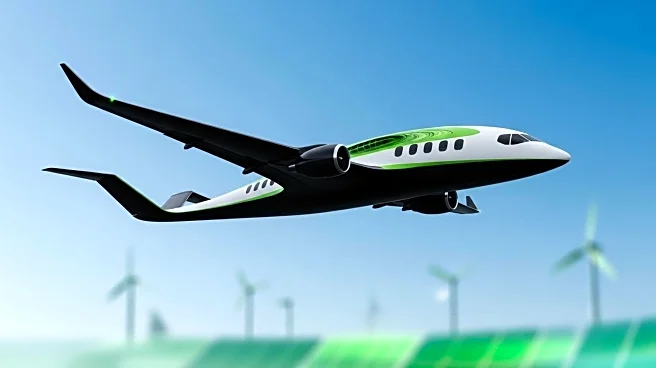What's Happening?
Leeds Bradford Airport is conducting a feasibility study to explore the production and use of sustainable aviation fuel (SAF) made from carbon dioxide and water. The study, funded by the Department for Transport with £1.5 million, aims to determine if Electrolysis Sustainable Aviation Fuel (eSAF) can be manufactured and utilized at the airport. This initiative is part of a collaboration with the University of Sheffield and the University of Leeds. SAFs are seen as a promising alternative to fossil fuels, as they recycle carbon rather than adding new emissions. The study's success could lead to the establishment of a production facility at the airport, contributing to the decarbonization of the aviation sector.
Why It's Important?
The development of sustainable aviation fuel is crucial for reducing the carbon footprint of the aviation industry, one of the most challenging sectors to decarbonize. By utilizing locally available resources like electricity, water, and atmospheric carbon dioxide, the project aims to create a circular carbon movement, minimizing environmental impact. The initiative not only supports environmental goals but also promises economic benefits, such as job creation and investment in the region. As the aviation industry seeks to meet climate targets, innovations like eSAF are essential for achieving sustainable growth and reducing reliance on traditional fossil fuels.
What's Next?
If the feasibility study proves successful, Leeds Bradford Airport may proceed with building a production facility for eSAF. This development would mark a significant step towards the commercial viability of sustainable aviation fuels. The project could serve as a model for other airports and regions, encouraging wider adoption of green aviation technologies. Stakeholders, including government bodies and environmental groups, will likely monitor the study's outcomes closely, as its success could influence future policy and investment decisions in the aviation sector.











